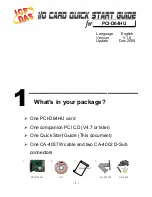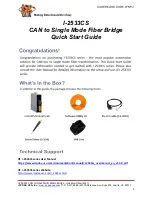
Copyright © 2005
– 2021 R. STAHL TRANBERG AS. All rights reserved. Page 7 of 38
Chapter III.
Functional description
Section 3.01
Introduction
The TEF 4900 Commander remote control system can have to up to 7 operator panels
connected in one system .
Each operator panel consist of up to 64 buttons, each stacked up to 8 rows. The panels
are backlit for easy reading of text and graphics, in daylight as well as at night. In
addition, up to 16 relay output modules may be connected, provi ding a flexible control
system with current sensing feedback from the outputs.
Application areas:
The Commander system is designed specifically for marine use and has a
contemporary design with backlit front panels. The design concept allows customi zation
of number of buttons, text and graphics, and is therefore useful for a wide range of
customer-specific navigation and signal lights controllers.
Communications:
Robust, industry proven and noise immune RS -485 is used for communication between
control panels, Master CPU and relay output modules. As an option, a communication
interface to Voyage Data Recorder and/or vessel control system will be available,
allowing data recording and external reset of alarms. The system supervises the
integrity and issues an alarm if a node fails to respond in the network.
Features at a glance:
24 VAC/VDC and 230 VAC versions
With or without current sensing capabilities on outputs
Optional compensation for voltage loss in long cable feeds
Analog output module: Combined dimmer and flasher, triac-based, 230VAC
Operator panels with dimm able backlight
Audible and flashing led alarm, with potential free relay alarm contacts
RapidAction™ buttons: One touch turns on and off dedicated outputs
GroupSelect™ buttons: Similar to radio buttons (select one buttons in a row)
Optional functionalities include VDR (Voyage Data Recorder) and/or SCADA
(Supervisory Control And Data Acquisition)
Section 3.02
Buttons and LEDs on panel
The TEF 4900 Commander is designed to be extensively configurable. This is in order
to meet customer requirements with a minimum of production or engineering changes.
Configuration options:
Text and graphics on panel
Button quantity and panel size
Button placement (installed or not installed in the grid pattern)
Button functionality (ranging from one single channel to a group of output
changes)
Output module type (analogue, discrete relay or relay with current sensing)








































